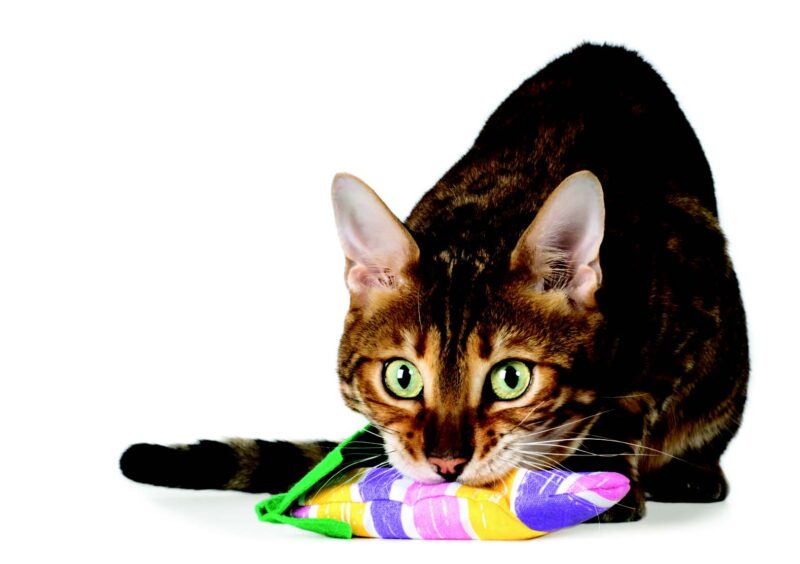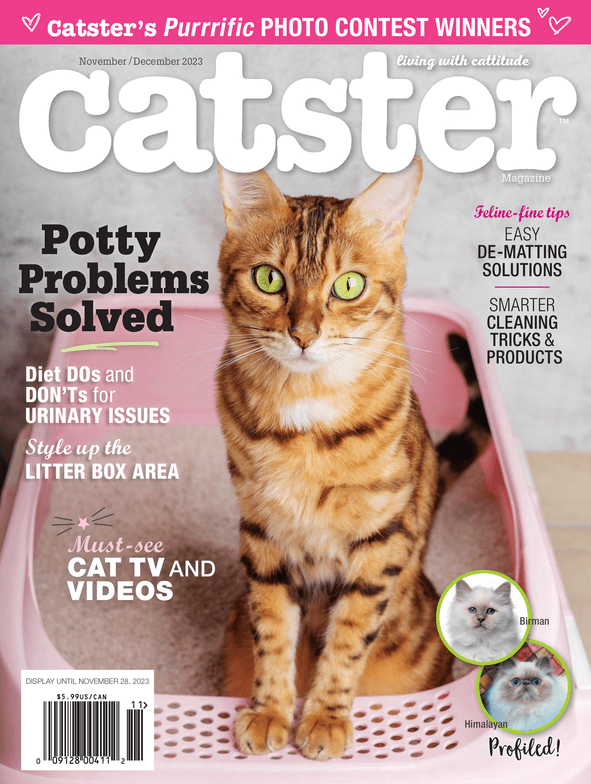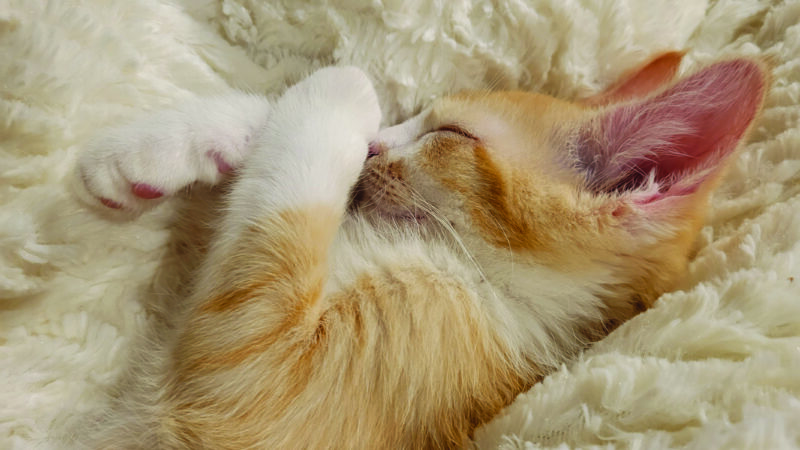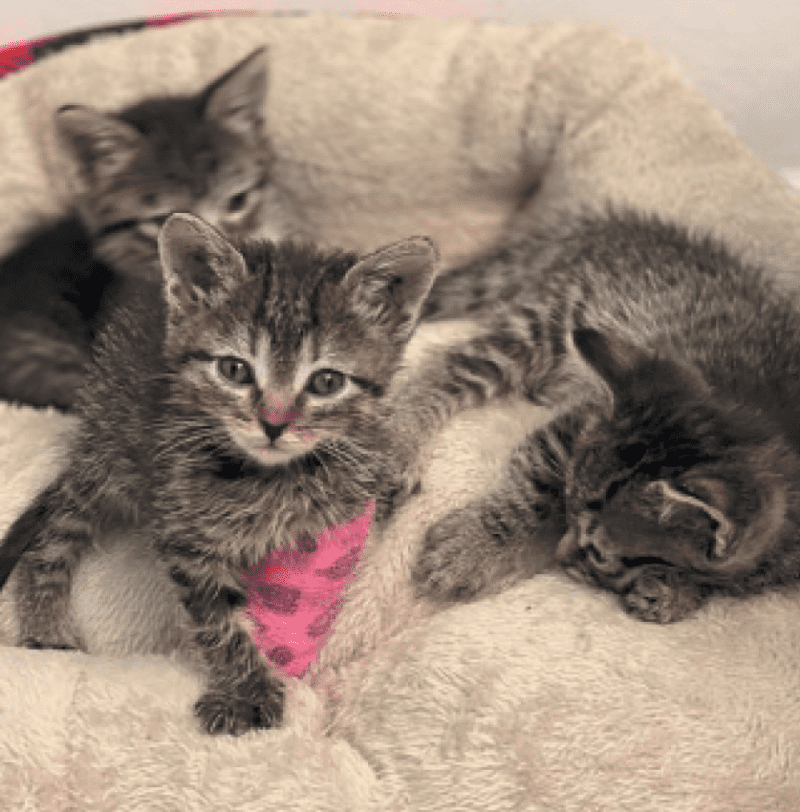Although I’ve had indoor-only cats for my entire adult life, I grew up with several outdoor cats who earned their weight in paper currency as “working” cats on my parents’ farm. Although these cats were friendly toward humans, I think they would have climbed the curtains if we tried to keep them indoors. But they were sure great at their jobs: catching mice, rats and moles in particular that shredded my parents’ lawn.
Our tuxedo cat, Miss Kitty, would wait patiently for a mole to come out of its hole beneath the grass, then she would grab it and bring it to my parents, who praised her for her work. I remember during a garage sale, Miss Kitty brought one of her “gifts” and dropped it right in front of one of our customer’s feet. You can imagine the alarm that the shopper expressed. I can’t remember anything more, but I’m guessing she never returned to any of our garage sales!
Love Language
Giving gifts is considered to be one of humans’ love languages, a concept made popular by Gary Chapman’s best-selling book The 5 Love Languages. Do cats have love languages and could gift giving be one of them?
Miss Kitty did receive a lot of praise from my parents whenever she brought her prey to them, and I guess you could surmise that she felt the love and repeated the behavior.
I consulted with board-certified feline veterinarian Gary D. Norsworthy, who owns the Alamo Feline Health Center in San Antonio and has more than 40 years experience practicing veterinary medicine.
“The older I get the more I am convinced that genetics is a major player in personality traits,” Dr. Norsworthy says. “I believe this is one example of that.”
Dr. Norsworthy recounted the story of one of his patients, Ret, who brought home tree bark, a deflated soccer ball and a horse’s bridle. Ret’s retrieving behavior began when he was 6 months old and his humans, a sweet senior couple, gave him treats every time he brought them one of his treasures.
Dr. Norsworthy refers to cats who engage in this behavior as retrieving cats. “These cats are not trained; they come by it naturally. Their unusual behavior may be increased with rewards, but retrieving cats are often driven to make their owners happy with or without rewards. If you have one of these unique cats, enjoy their special talent.”
Hunting Instinct
All cat species are carnivores and have an instinct to hunt. Among lions, the lionesses hunt for food and bring it to the cubs as a team, while male lions protect the pride. Other feline species are solitary hunters, but the females still share the food with their offspring and teach them to hunt.
Female domestic cats also hunt and bring dead or injured prey home to their offspring to teach them how to hunt. One theory is that spayed females, as they do not have offspring, bring their prey to their humans instead. In other words, they consider their humans as family.
You might inadvertently reward this behavior without realizing it. If you jump, scamper trying to catch the thing, then give your cat a treat, you just rewarded the behavior.
If your cat plops a toy or other object in front of you, he is most likely looking for some playtime. That is a good time to indulge your cat’s need to play. Cats are hardwired to play and might engage in destructive behaviors or have health problems if they don’t get enough playtime.
Curbing Predation
If you’re concerned about your cats bringing prey animals into your home, here’s how to get them to stop.
- Keep your cats indoors. Studies show indoor-only cats live longer.
- Provide regular playtime. They need the stimulation and exercise.
- Use food or treat dispensing puzzle toys to simulate hunting followed by eating.
- Feed a high-meat protein diet. Cats need animal protein to thrive.
In a recent study, researchers from the University of Exeter in the United Kingdom found that people who provided their cats with a high-meat protein, grain-free diet and introduced five to 10 minutes of play with prey-simulating toys each day experienced a 25% to 36% decrease in the numbers of animals the cats captured and brought home.
The researchers concluded that nutrition and playtime were so successful in curbing feline predation that these noninvasive, positive methods worked better than impeding their hunting abilities by such measures as adding bells to their collars, which they wrote had no discernible effect. The study, “Provision of High Meat Content Food and Object Play Reduce Predation of Wild Animals by Domestic Cats Felis catus,” was published on Feb. 11, 2021, in Current Biology.
No matter their reason for bringing you gifts, your cats see you as family as much as you see them as family. And like you, their basic needs for a healthy life include proper nutrition and exercise.
What kinds of gifts does your cat bring you? Share your stories with us at catstermag@belvoir.com.








